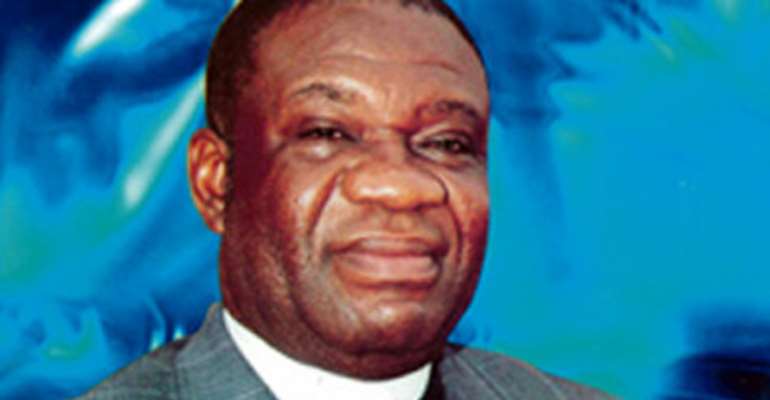Power generation drops by 1,000MW to 2,513MW

The current epileptic supply of electricity being experienced across many parts of the country is as a result of the massive drop in generated power by 1,000 megawatts in the last one week, the Federal Government has said.
Figures released by the Federal Ministry of Power showed that the country's peak generation as of October 15, 2014 was 3,513.5MW, against a peak demand of 12,800MW.
It, therefore, means that the country is currently generating about 2,500MW.
Many Nigerians have in the last one week decried the poor supply of electricity and criticised the power firms for not living up to expectation since the sector was privatised last year.
The Minister of Power, Prof. Chinedu Nebo, had during a recent unscheduled visit to the Abuja Electricity Distribution Company charged the management of the firm to, as a matter of urgency, address the epileptic power supply in the entire Federal Capital Territory and its environs.
But speaking in Abuja on Monday, the minister said the poor electricity supply across the country in the past one week was due to the 1,000MW drop in power generation.
Nebo said this during the Presidential Expert Group Meeting on Infrastructure Ranking and Scorecard Roadmap organised by the Nigerian Society of Engineers.
The minister, who attributed the drop to the menace of gas pipeline vandalism said, 'We want to be very sure that this is nipped in the bud with regards to gas supply and we are doing everything possible to minimise the incidences of vandalism.
'Now, look at what vandalism has cost us; nearly 1,000MW of power in the past one week on a daily basis. And this means that every Nigerian is cringing in pain because of the loss.'
Earlier, during the meeting proper, Nebo explained that two major gas plants were severely affected and this had warranted the fall in electricity generation.
He said, 'Recently within the past week, the Okoloma gas plant has been down due to sabotage, blowing up and vandalism of three of its wellheads, and then robbing Shell of the capacity to deliver over 180mscuf of gas on a daily basis. When you translate this, you are talking of over 720MW of power that is stalled for the past several days.
'So, that really caused our power generation transmission and distribution to dwindle. And the NPDC is also having challenges because of old gas generating plants that quite often the components are either due for repair or for maintenance. And some of these parts are not readily available but these things need to be changed.
'That has also knocked off nearly 80mscuf of gas. When you add this to what we have lost in Shell, you will see why we have dropped 1,000MW in the past several days. That will show you what gas can do and our continued dependence on gas as our major source of energy to our power plants is really a national security issue.'
Nebo said it had come to the notice of the Federal Government that some electricity distribution companies were rejecting the power being sold to them.
He gave an assurance that the government would not hesitate to penalise culpable power firms and stated that his ministry was working out ways of ensuring that non-defaulters in the payment of electricity bill did not suffer with those who failed to pay their bills.
The minister said, 'With regard to some of our distribution companies, we want to ensure that best practices are incorporated in their delivery services. For instance, we hear that there are some Discos that actually reject power that is being given to them and this is unacceptable in an economy where everybody is asking for power.
'We also want to be sure that people are properly metered and are not cut off unnecessarily. For instance, even me as minister of power, when some of the other ministries don't pay for electricity, all of us are cut off at the same time. So, we have to cringe in pain too and that is not because we didn't pay, we paid. But if somebody else has not paid, all of us are affected one way or the other.
'So, we need to find a very systematic way of making sure that people pay what they ought to pay and when they don't pay they are penalised and others who have paid are not affected. There should be no collateral damage for neighbours simply because somebody has refused to comply.'
On the reason for the meeting, the President, NSE, Mr. Ademola Olorunfemi, said the scorecard and ranking system would ensure the adequate monitoring and evaluation of the nation's infrastructure stock. Punch
